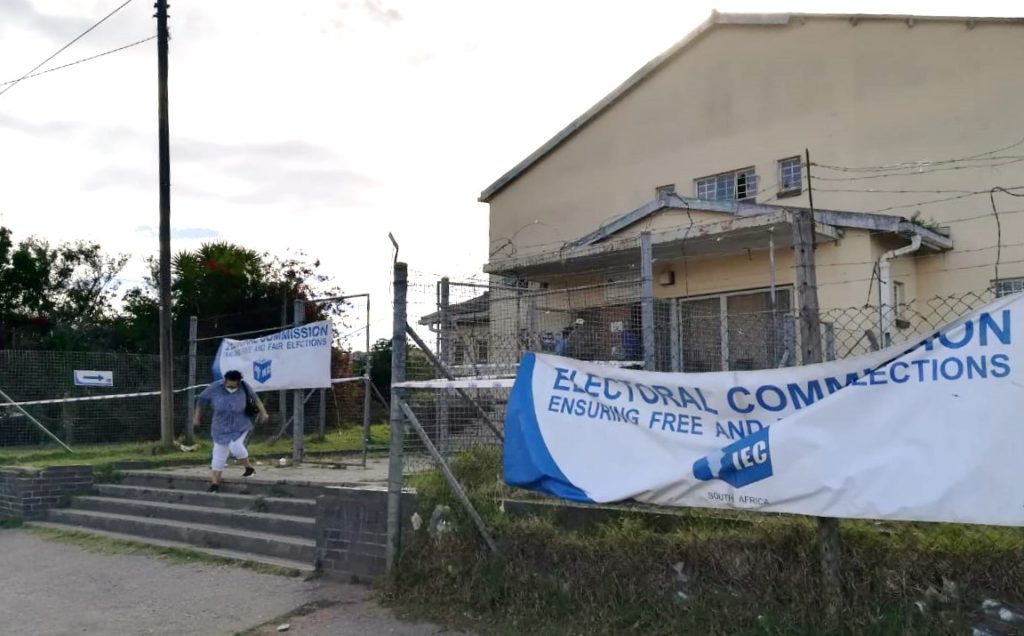By CHRISTI VAN DER WESTHUIZEN, Associate Professor, Centre for the Advancement of Non-Racialism and Democracy (CANRAD), Nelson Mandela University
South Africa’s 2021 local government elections are set to go down in history as a watershed moment in the country’s politics. Electoral support for the African National Congress (ANC) dropped below 50% for the first time since the party ascended to government 27 years ago. Although it won 161 of the 213 contested municipalities, the number of councils without a clear majority of any party nearly quadrupled from 18 to 70.
A significant portion of voters stayed away from voting stations. Most were former ANC voters, continuing the trend from previous elections.
Counting all eligible voters rather than only those who registered, voter withdrawal has reached a critical level. Less than a third of eligible voters –- 12 million out of 42.6 million -– made their crosses. Rather than apathy, this represents a “deliberate” stay away vote, as the political analyst Moeletsi Mbeki has argued.
This concerted withdrawal should be read against the results of a recent survey by Afrobarometer, an independent pan-African surveys network. It found that local councils garnered the least trust out of 17 institutions in South Africa.
Almost three-quarters –- 72% –- of respondents trust local councils “a little or not at all”.
This staggeringly low level of trust has to do with deepening socio-economic misery. The South African economy was in recession before the COVID-19 pandemic. The economic destruction caused by the pandemic has pushed the unemployment rate to 44.4% when using the expanded definition that includes jobless people who have ceased seeking work.
The everyday struggle to survive becomes even more challenging in the face of a terminal deterioration in the provision of essential services by municipalities, such as water and sanitation, combined with corruption and infrastructural collapse that pose further threats to lives and livelihoods.
A truism oft-heard from politicians is that government cannot solve South Africa’s problems by itself. But what to do with a government that places impediments in the way of its citizens? This reality at the local government level needs to be fixed for South Africans to regain their trust in the democratic process.
Local government is broken
More than half of people canvassed by market research group Ipsos believe that local governments do not work optimally. Voter perception of malfunctioning municipalities is confirmed by the oversight reporting of the Auditor-General, Tsakani Maluleke.
She reported irregular expenditure of R26 billion (US$1.7billion) at municipalities in the 2019 to 2020 financial year. Only 27 out of the country’s 257 municipalities received clean audits. Moreover, 57 municipalities failed even to submit the legally required audits.
Maluleke pointed to a lack of monitoring and supervision underpinning a lack of accountability, with resources being mismanaged and services not provided as they should be.
The Auditor-General’s conclusions accord with voter perceptions. The Ipsos survey found that almost a quarter of respondents thought that local councillors were incompetent or corrupt.
The perception of incompetence is further borne out by a recent study by the Bureau for Economic Research. It revealed that only about half of senior government officials and financial managers had qualifications appropriate to the posts they held.
The ANC’s controversial policy of “cadre deployment” plays a significant factor. The policy entails appointing party apparatchiks to key state positions. Selection is not made transparently. The result is civil servants deeming themselves to be accountable to the party rather than to voters.
This leads to incompetent people being in charge of finances, including income management, debt collection and municipal projects. The Bureau for Economic Research found operational budgets were over-spent while capital expenditure stalled at the 2009 level.
As a result, environmental and health catastrophes have hit many municipalities, including raw sewage polluting drinking water.
Residents’ despair is exacerbated by corruption. Corruption Watch, an NGO that tracks corruption, found that one in six reports received from whistleblowers fingered local government. Irregularities occurred in procurement and staff appointments. Bribery was a common form of corruption, amounting to an extra tax on the poor for state services that remained inefficient.
Political appetite
Given the colossal crises besetting local government, it remains to be seen whether newly elected councillors can win back the electorate’s trust. As these crises were in many cases created by the country’s political class, many voters will be sceptical about whether the appetite even exists to turn the dismal state of local government around.
But perhaps the plunging election turnout – particularly shocking in a country where people struggled for democracy – may finally jolt the political elite into action.
This article was first published by The Conversation Africa.


